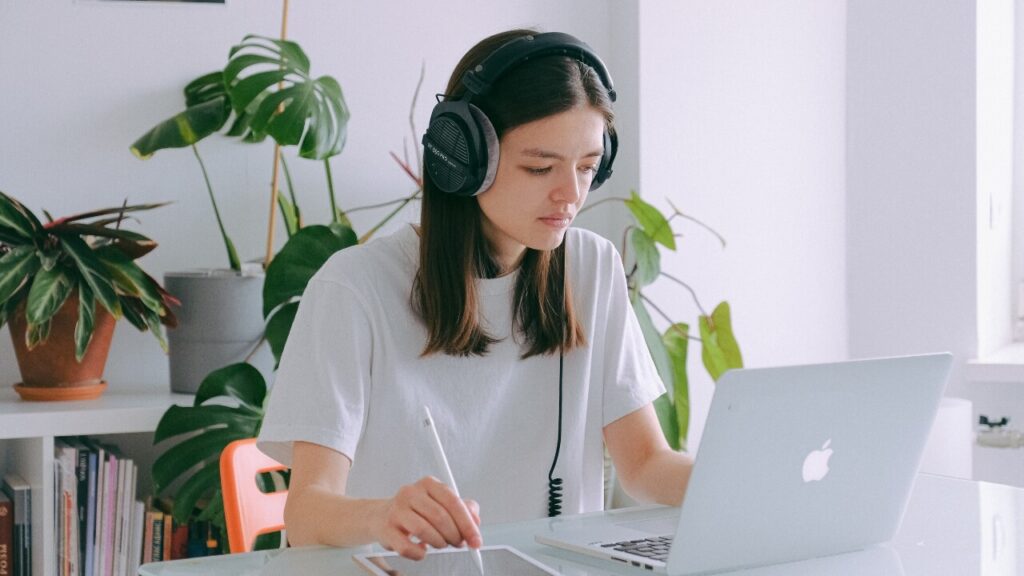If you’re an international professional seeking a chance to migrate to Germany, a Freelance Visa for Germany could be a great option. In this way, you can further your career as a freelancer or self-employed individual in Germany.
To start your career in a new country, obtaining a freelance visa is your first step. With a wide variety of industries spanning cities like Berlin, Hamburg, Munich, Frankfurt, Köln, etc Germany grants numerous opportunities for freelancers.
Moreover, acquainting yourself with comprehensive information on the process of obtaining a freelance visa for Germany can significantly help in a smooth visa application.
In this article, we will guide you through the types of freelance visas available, the eligibility criteria, and the application procedure.
German freelance visa: what is that?
The German freelance visa is a special permit that allows individuals to work as freelancers in Germany. To obtain this visa, applicants must demonstrate a viable freelance business plan, financial stability and relevant professional qualifications.

Firstly, potential freelancers need to apply for a residence permit at the local German embassy or consulate. Once approved, this visa permits them to work independently, contributing to Germany’s diverse economy while enjoying the benefits of a freelance career in the country.
Why do you need a German freelance visa?
Germany opens its doors to independent professionals who can bring value to its economy and culture through the German freelance visa. With two types of visas, Freiberufler (Visa for Freelance Professions) and Selbständiger (Visa for Self-Employment), international freelancers can work in Germany.
However, obtaining an entry visa hinges on meeting specific prerequisites. Such as proving an economic interest in one’s services, securing accommodations and presenting a client base and financial sufficiency. On the other hand, once in Germany, the entry visa must be converted into a residence permit.
Is freelancing allowed in Germany? Yes, but it is vital to understand the German freelancer visa process and meet the necessary requirements to legally perform freelance activities in the country.
Freelance visa requirements
Meeting Germany’s freelance visa requirements involves distinctly understanding the German freelancer visa process. It includes the following essential aspects:
- Researching and identifying the appropriate visa type (Freiberufler or Selbständiger)
- Gathering necessary documents, such as professional licenses or certifications, letters of intent from clients and proof of financial sufficiency
- Applying for the visa at a German consulate or embassy
- Converting the entry visa to a residence permit after arriving in Germany
- Registering your presence and abiding by the legal requirements for taxation and health insurance
To successfully guide the freelance work permit process in Germany, compliance with its set guidelines is very important.
| Freelance Visa Requirement | Description |
|---|---|
| Economic Interest or Need for Service | Prove that your skills or occupation will contribute positively to the German economy or culture. |
| Accommodations | Show evidence of secured housing in Germany suitable for your duration of stay. |
| Clientele Base Confirmation | Provide letters of intent or commitment from prospective clients acknowledging your work relation. |
| Financial Sufficiency | Demonstrate a stable financial background through bank statements or proof of income. |
| Conversion to Residence Permit | Provide letters of intent or commitment from prospective clients acknowledging your work relationship. |
Types of freelance visas: Freiberufler vs. Selbständiger
Germany offers two different types of freelance visas for the needs of different professionals. These are the Visa for Freelance Professions (Freiberufler) and the Visa for Self-Employment (Selbständiger).

Certainly, each visa serves a specific purpose and is suited to different categories of professionals. Let’s look deeper into the characteristics of these two freelance visas:
Visa for Freelance Professions (Freiberufler)
The Freiberufler Visa is also known as the Germany freelance Freiberufler visa. It is designed for individuals who work in artistic, writing, therapeutic, engineering etc fields. This visa is ideal for professionals seeking a freelance artist visa in Germany or a freelance artist visa in Berlin.
These individuals are expected to demonstrate the benefit of their profession to the German economy and possess specialized skills or contribute to the cultural enrichment of Germany.
The Freiberufler visa is specifically tailored for freelance professionals who can use their abilities to make a meaningful impact on German society and the economy.
Visa for self-employment (Selbständiger)
On the other hand, the Selbständiger visa caters to individuals who aspire to establish a business or operate as company founders or managing representatives in Germany.
This visa, often referred to as the self-employed visa Germany or Germany self-employed visa, requires applicants to showcase a strong economic interest in Germany, potential benefits to the German economy, and secure financial backing for their venture.
In short, the Germany self-employed visa requirements focus on candidates who can contribute to the nation’s growth through their entrepreneurship or self-employment endeavors.
In conclusion, understanding the key differences between the Freiberufler and Selbständiger visas is essential for applicants.
You need to determine which type of visa best suits your specific professional background and aspirations.
With the right freelance visa in hand, professionals can confidently embark on their journey toward becoming a successful freelancers in Germany.
Eligibility criteria of freelance visa for Germany
To successfully apply for a German freelance visa from India, Pakistan, Nigeria or any other country, it is important to evaluate their eligibility. There are several factors that determine your question: can I work as a freelancer in Germany?
In this section, we will outline the key eligibility criteria for individuals seeking a Germany freelance residence permit, along with some freelancer visa guidelines to help you navigate the application process.
- Significance of your profession in Germany
- Client interest
- Financial stability
- Legal residence
- Pension plan (applicable for candidates aged 45 and above)
Profession eligibility
The first step in measuring your eligibility is to assess the financial or cultural value your profession holds for Germany. Some industries or professions may be more in demand than others, and it is essential to demonstrate that your skillset or line of work could bring tangible benefits to the German economy or society.

It is not enough to merely apply for a Germany freelance visa. Instead, you must showcase how your profession will positively impact the German economy or enrich its cultural landscape.”
Client interest
Client interest plays a key role in determining your eligibility as well. If you can provide proof of commitment letters or statements of intent from potential clients within Germany, this will help demonstrate that you could find freelance opportunities and client contracts in the country.
Financial stability
Another important criterion is having sufficient financial resources to cover your living expenses in Germany. You should be prepared to provide evidence that you have around €12,000 per year to support yourself while staying in Germany and pursuing your freelance career.
Legal residence
On the other hand, legal residence is a necessary prerequisite. This entails providing a valid address and evidence of secured accommodation within Germany. While this can be temporary, such as staying at a friend’s place or a short-term rental. That’s why it should be arranged before applying for a freelance visa.
Pension plan
Finally, if you are aged 45 or above, the German government will also inquire about your pension plan to ensure that you are well-prepared for future financial needs. Having an adequate pension plan is a requirement. So make sure you have the necessary arrangements in place.
German freelance visa eligibility criteria
| Eligibility Criteria | Description |
|---|---|
| Profession’s Significance | Financial or cultural value added to Germany |
| Client Interest | Letters of commitment from prospective clients |
| Financial Stability | Proof of around €12,000 per year |
| Legal Residence | Valid accommodation address in Germany |
| Pension Plan (if applicable) | Evidence of an adequate pension plan for candidates aged 45 and above |
Freelance visa for Germany: step-by-step application guide
Securing a German freelancer visa is a methodical process that requires attention to detail and adherence to strict guidelines. That’s why we’ve outlined key steps to help you successfully apply for your freelance work visa Germany.
Scheduling an appointment with the German Embassy
The first step in your Freiberufler visa Germany application process is to schedule an appointment with a German diplomatic mission overseas. Keep in mind that visa processing can take up to three months, so plan your appointment accordingly.
Gathering the necessary documents for a freelance visa for Germany
Before attending your visa interview, you must collect and submit the required documents to ensure the best possible outcome for your freelance residence permit in Germany. These documents include:
- Valid passport
- Biometric photographs
- Proof of paid visa application fees
- Health insurance documentation
- Recommendation letters
- Updated CV
- Work portfolio
- Professional authorizations
- Educational certificates
- Proof of finances
- Letters of commitment from future employers
Attending your visa interview
In this crucial step, you will attend an interview at the German embassy or consulate to obtain your freelance visa for Germany. Upon successful completion of the interview, you will submit the necessary documentation. Then, you will wait for the decision on your visa freelance in Germany

Once your application has been approved, the freelancer visa will be affixed to your passport. You can either collect your passport in person or have it delivered via courier.
Armed with this step-by-step guide, you can now confidently apply for a freelance visa in Germany and can be a successful freelancer in Germany.
After arrival: registering your presence in Germany
Let’s say, you have successfully obtained your Berlin freelance artist visa or something similar and arrived in Germany. So, what next? Basically, there are still a few mandatory administrative steps you need to complete.
We have outlined these necessary procedures to help you get settled in and begin your freelance journey in Germany smoothly.
- Register your accommodation: Within 14 days of your arrival, it’s essential to register your living address with the local Citizen Service Centre (Bürgeramt). In doing so, you establish your legal residence in the country and obtain a registration confirmation (Anmeldebestätigung). Keep in mind that this registration is a prerequisite for obtaining your freelance tax number.
- Open a German bank account: Having a local bank account is extremely useful, as it facilitates seamless transactions of your earnings and expenses. You can choose between various banks, such as Deutsche Bank, Commerzbank, or Sparkasse, for this purpose. Online banks like N26 and DKB can also be an option, especially for English-speaking expats.
- Declare your freelance activity: It’s imperative to inform the Tax Office (Finanzamt) of your freelance profession and obtain a freelance tax number (Steuernummer). This step enables you to legally operate as a freelancer and ensure adherence to the responsible tax-paying systems in Germany.
To expedite your transition and emphasize the importance of these steps, consider the following freelance artist visa Germany requirements as a comprehensive checklist.
After arrival tasks in Germany
| Task | Action | Why It’s Important |
|---|---|---|
| Register your accommodation | Visit the local Bürgeramt within 14 days of your arrival. | Establishes your legal residence in Germany, enabling you to obtain a freelance tax number |
| Open a German bank account | Setup an account with a local bank or online banking options like N26 or DKB | Facilitates seamless financial transactions, critical for managing your freelance finances |
| Declare your freelance activity | Inform the Tax Office (Finanzamt) of your profession and obtain a freelance tax number (Steuernummer) | Legally operate as a freelancer and adhere to the tax-paying systems in Germany |
Navigating health insurance and taxation as a freelancer in Germany
As a freelancer with a freelance artist visa Germany, health insurance and understanding the tax system are two crucial aspects to consider while working in Germany. In this section, we will discuss the importance of health insurance and the tax system for freelancers on a German freelance artist visa.
The importance of health insurance
Regardless of your profession or if you are on an artist freelance visa Germany, health insurance is mandatory for all freelancers in Germany.
While there are both public and private options available, it’s essential to choose the most suitable coverage based on your specific needs.
Health insurance is separate from travel insurance, which might also be necessary, depending on the visa requirements.
Understanding the tax system for freelancers
Taxes for freelancers in Germany can be complicated, so understanding the tax system is vital when working on a freelance artist visa in Germany. Income tax rates for freelancers vary, ranging from 14% to 43%, depending on annual earnings. Those with earnings below €9,744 per year are exempt from income tax.

Unlike regular employees, freelancers are not required to pay social security in Germany. However, it is recommended that freelancers arrange for health, disability, and life insurance to ensure financial security.
“It is crucial for freelancers in Germany to have comprehensive health insurance coverage and a thorough understanding of the tax system to navigate the financial aspects of their work smoothly.”
Visa fees
Lots of people are asking: how much does it cost for visa to Germany? While the German visa fees vary, but it is typically around €75 to €85 for a single permit. Still, this fee is subject to change and may differ depending on the visa type and individual circumstances.
Cost of living and adjusting to life in Germany
As a freelancer in Germany, it’s essential to understand the cost of living and find ways to adjust to life in the country. This encompasses managing accommodation expenses, basic utilities and food, as well as cultural integration and networking.
Accommodation and monthly expenses
Accommodation prices in Germany vary depending on the location, with apartments both within and outside city centers. The cost of a one-bedroom apartment ranges from €450 to €950 per month. On the other hand, a three-bedroom apartment is between €800 and €1,650. Additionally, basic utilities (including heating and electricity) average around €180-€620 per month. Below is a table summarizing these costs:
| Type of Apartment | Monthly Rent | Basic Utilities |
|---|---|---|
| One-bedroom apartment outside the city center | €450 to €750 | €180-€420 |
| One-bedroom apartment inside the city center | €650 to €950 | €180-€420 |
| Three-bedroom apartment within city center | €1,100 to €1800 | €300-€620 |
| Three-bedroom apartment outside city center | €850 to €1,500 | €300-€620 |
Besides housing and utilities, other living expenses need to be considered. It includes groceries, dining out, transportation and leisure activities etc.
Cultural integration and networking
Adjusting to life in Germany as a freelancer goes beyond managing living expenses. To assimilate into the social and professional fabric of the country, it’s essential to engage in cultural integration and networking. This can be achieved through:
- Participating in local events and festivities
- Learning the German language
- Joining clubs and associations related to your profession
- Attending workshops, seminars and conferences within your industry
- Maintaining an active online presence by connecting with other freelancers and industry experts on social media and professional platforms
Taking the time to understand and adapt to the German culture, as well as building a strong professional network is important. It can greatly improve your experience while living and working as a freelancer in Germany.
Letter of intent template or example
Crafting a compelling letter of intent is really important for expressing your enthusiasm and qualifications. Start by addressing the recipient and stating the purpose clearly. Outline your background, emphasizing relevant experiences and skills.
That’s why, convey genuine interest and align your goals with the recipient’s mission. Finish with a strong closing expressing eagerness for consideration. A well-crafted letter of intent showcases your commitment and makes a lasting impression on the reader.
Here we are going to give you an example letter of intent so that you can have an idea of what should you write and what not.
Freelance visa or residence permit form
To obtain a freelance visa or residence permit you need to apply. We are giving here a form where you can see the details that you should fill up. However, keep in mind, that every embassy consulate or city in Germany can have their own form.
So before you use that just try to compare. But you have at least one example so far. You can download it from here.
FAQs: freelance visa for Germany
What are the two types of freelance visas in Germany?
The two types of freelance visas in Germany are Freiberufler (Visa for Freelance Professions) and Selbständiger (Visa for Self-Employment).
What is the eligibility criteria for a German freelance visa?
Eligibility criteria for a German freelance visa include proving that your profession has financial or cultural value to Germany, demonstrating existing client interest, ensuring sufficient funds (at least €9,000 per year), having a legal residence, and an adequate pension plan for those over 45 years old.
How do I apply for a German freelancer visa?
You have to schedule an appointment with the German embassy, gather the necessary documentation, and attend a visa interview to apply for a German freelancer visa.
How much does it cost to live in Germany as a freelancer?
The cost of living in Germany for freelancers entails considering accommodation prices, utilities, and food. Monthly rent for a one-bedroom apartment ranges from €621 to €872, while a three-bedroom may cost between €1,186 to €1,593, with utilities averaging around €242.59.
What documents do I need to submit when applying for a German freelance visa?
Required documents include a valid passport, biometric photographs, proof of paid visa application fees, health insurance, recommendation letters, updated CV, work portfolio, professional authorizations, educational certificates, proof of finances, and letters of commitment from future employers.
Conclusion
To sum up this info-post, we would like to mention that, there are numerous freelancing opportunities in Germany. To make the most out of these possibilities, one must successfully apply for a German freelancer visa.
But before that, one must have a strong understanding of the diverse visa types, eligibility criteria and the application process. By comprehending these various aspects, international professionals can increase their chances of establishing a thriving freelance career in Germany.
However, securing a freelance visa for Germany might initially seem complicated. But with careful planning, research and adherence to requirements, it is 100% an achievable goal.
A well-prepared application, along with a proactive approach can surely help you to obtain a freelance visa for Germany.
We hope you find this post helpful. If so, then don’t forget to share it with your friends and colleagues.

barita
restaurant